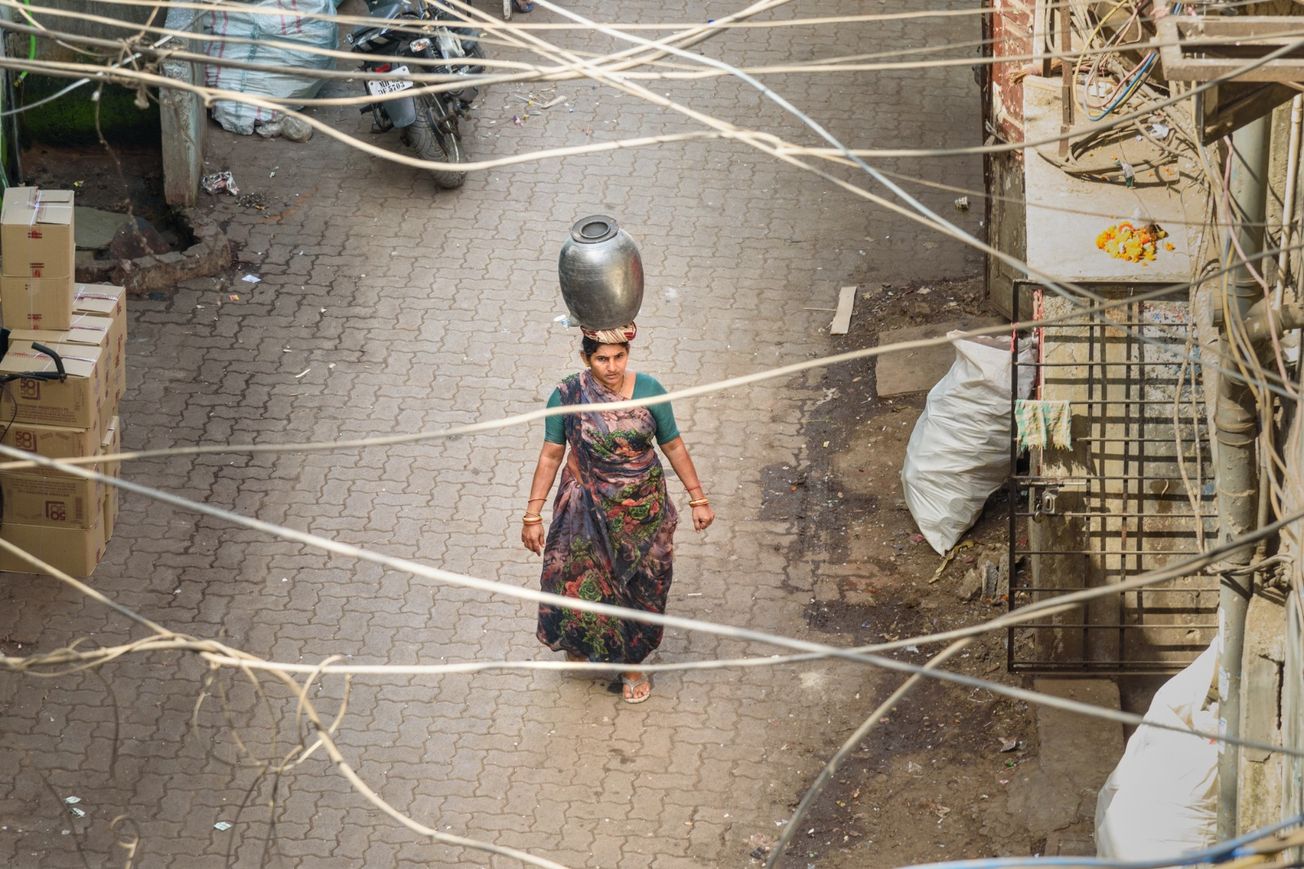Neoliberalism is a convenient ideology for those with caste and class privilege. It allows them to disconnect from the reality of the economic precarity of those they exploit for a comfortable life.
These are the myths about economically disabled people that serve as moral justification:
- The free market is a level playing field for everybody willing to work hard.
- The poor remain poor due to laziness or lack of merit
- Their past life “karma” makes some people poor.
No disaster seems to be sufficient to evoke any sense of empathy for the poor. Urban planning has always been geared towards increasing gentrification through anti-poor infrastructure.
The urban and ruling elite are so ashamed of the poor that they want to keep them out of sight when high level state visits take place. The shame should stem from the failure of systems they create that leave so many behind.
A view of the economy as abstract terms and numbers rather than our material relationships with one and others, makes it easy for governments to gaslight us about the realities of the economy. As the corporate-state nexus thrives, misinformation is spread regarding inflation, the cause of economic crises, or the intention behind adopted policies.
The government evades accountability by assigning the cause of economic hardship people face to either global crisis out of their control or to individual/community behaviours. The myth of the “ambitious”, “hard-working”, industrious middle classes is propagated when in reality workers are exploited by crony-capitalist structures.
Urban middle-classes & the generationally wealthy, easily buy into this narrative. They are firm in the belief that they can replicate the success of the rich in the market economy if they work hard enough. In reality, this “hard work” is often about how effectively the poor can be exploited.
“It validates our middle-class morality underlying a social arrangement that allows civil inaction and victim-blaming to fester, while never having to acknowledge the real problems of structural inequality and systemic bias."¹
Maintaining high levels of poverty serves a capitalist purpose: creating a disposable labour force. Propagating myths about poverty allows impunity. It makes it possible for the government to appear to be pushing for an “Atmanirbhar Bharat” and simultaneously allow extreme inequality to exist.
These unchecked biases have dangerous implications on the right to dignity and livelihood of the poor.
In the pre-liberalisation era, those who wanted to use their caste, class, and cultural capital for financial gain, complained about the inadequacy of socio-economic policies.
The change in the political landscape, the adoption of the neoliberal policies, as well as “Modinomics” post 2014 were conducive to the conversion of this socio-cultural capital into financial gain.
The faith in rapid social-mobility in a “free-market” is an illusion when these privileges are not acknowledged. It gives rise to the contempt of the poor and their exclusion from deserving groups.
The pandemic challenged some of these false beliefs, but far from being unraveled, they were conveniently dismissed, and quickly forgotten.
Individuals belonging to the urban white-collar/professional classes imagine the poor have the “privilege” of leading easier lives as their work is less stressful work. This is an expression of the culturally encoded disrespect & disdain for manual, poorly remunerated labour. Educated upper and middle-class individuals often wield the power & influence to have their beliefs inscribed into the state policy. Some examples are–
- Unnecessary criminalization & incarceration of the poor (anti-begging, anti-hawking laws)
- Marginalization (Slum clearance projects, displacement)
- Diminishing welfare policies (eg. neglect of MGNREGA implementation)
Anti-poor upper and middle-class individuals often wield enough power & influence to have their beliefs inscribed into the state policy.
Uncritically upholding neoliberalism as an ideal economic model reinforces anti-poor beliefs that maintain inequality.
SOURCE:
¹The mafia of middle-class convenience, Sabina Yasmin Rahman, The Hindu Business Line, Mar 10, 2018
(This article was first published as a social media post here).






